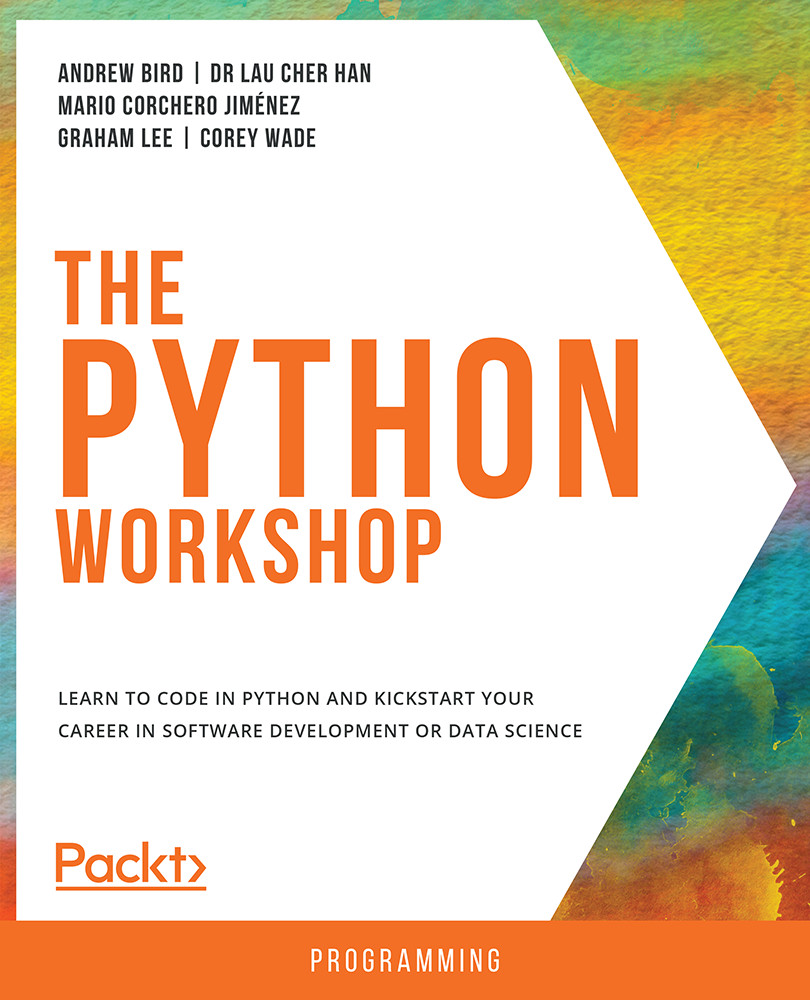-
Book Overview & Buying

-
Table Of Contents

The Python Workshop
By :

The Python Workshop
By:
Overview of this book
 Free Chapter
Free Chapter
 Sign In
Start Free Trial
Sign In
Start Free Trial


 Free Chapter
Free Chapter
Sooner or later in your development, you will reach a point where you see our program behave differently than you initially expected. In situations like these, you usually look back at the source code and try to understand what is different between your expectations and the code or inputs that are being used. To facilitate that process, there are multiple methods (in general, and some that are specific to Python) that you can use to try to "debug" or "troubleshoot" the issue.
Usually, the first action of an experienced developer, when frustration arises from unexpected results in their code, is to look at the logs or any other output that the application produces. A good starting point is trying to increase the logging verbosity, as discussed in Chapter 6, Standard Library. If you are not able to troubleshoot the problem with just logs, it usually means that you should look back at how we are instructing our application to log its state and activity...

Change the font size
Change margin width
Change background colour